Team Members (M-Z)
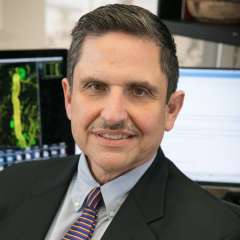
Vice Chair, Academic Affairs
Eli and Edythe Broad Center of Regenerative Medicine
Department of Pediatrics
Professor of Gastroenterology and Nutrition
David Geffen School of Medicine at UCLADr. Martín is a professor of Pediatrics in the Division of Pediatric Gastroenterology, Hepatology, and Nutrition and vice chair of Academic Affairs in the Department of Pediatrics at UCLA. He earned his medical degree from Harvard Medical School and his master’s in public policy from Harvard University School of Government. Dr. Martin completed a postdoctoral research fellowship in the Pediatric Scientist Training Program, working with Drs. John Walsh and Ernest Wright at UCLA in the Department of Physiology.
Dr. Martín long-term interest has been in investigating the molecular basis of various novel and established inherited disorders associated with diarrhea and intestinal failure. His initial research involved cloning the Na/glucose co-transporter (SGLT1) and identified mutations resulting in glucose-galactose malabsorption (GGM). He subsequently identified two novel chronic congenital malabsorptive diarrheal disorders that result from mutations of Neurogenin-3 and PCSK1 genes. These discoveries confirmed for the first time that enteroendocrine cells are essential in facilitating nutrient assimilation and were the first described enteric endocrinopathy disorders. Dr. Martín Profile(Link is external)
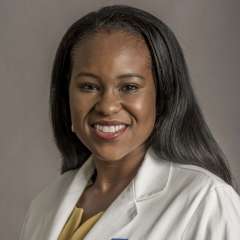
Associate Professor of Medicine, Vatche and Tamar Manoukian Division of Digestive Diseases
Director, Melvin and Bren Simon Gastroenterology Quality Improvement Program
Associate Director, UCLA Kaiser Permanente Center for Health Equity in the UCLA Jonsson Comprehensive Cancer Center
Associate Director, UCLA Specialty Training and Advanced Research Program
David Geffen School of Medicine at UCLADr. May graduated cum laude from Yale University with a degree in molecular, cellular, and developmental biology. After college, she attended the University of Cambridge to study epidemiology and international health, earning a master’s of philosophy in epidemiology before returning to the U.S. to attend Harvard Medical School. She completed her internship and residency in internal medicine at Massachusetts General Hospital (MGH) and remained at MGH for one year as a hospitalist and clinical educator in the Department of Medicine Academic Medicine Quality Program and as manager of Trainee Affairs for the MGH Multicultural Affairs Office. Dr. May came to UCLA in 2011 to begin her gastroenterology fellowship and was part of the UCLA Specialty Training and Advanced Research (STAR) program. During her fellowship, she earned a PhD in health policy and management from the UCLA Fielding School of Public Health. Her doctoral dissertation addressed Black-White disparities in colorectal cancer incidence, screening and outcomes. Upon completing her GI fellowship, Dr. May joined the digestive diseases faculty at UCLA with a dual appointment in the Veterans Affairs. She is the director of the May Laboratory, which engages in health services research and quality improvement related to population health, preventive health, and health disparities at UCLA Health, in Federally Qualified Health Centers (community health centers), and in the Veterans Affairs. Research spans several areas from the epidemiology of disease and disease risk factors to implementation science to improve disease outcomes. As director of the Melvin and Bren Simon Gastroenterology Quality Improvement Program, Dr. May also oversees a portfolio of quality improvement projects at UCLA Health to improve the quality of care for UCLA Health patients with gastrointestinal and liver conditions. Dr. May is passionate about improving awareness about preventive health and health equity and is involved in advocacy at the state and national level to develop and encourage policy to improve healthcare delivery. She has received numerous local and national awards for her research, community engagement and advocacy, including recognition from the American Cancer Society, National Colorectal Cancer Roundtable, American College of Gastroenterology, and American Gastroenterological Association, and the Biden Cancer Moonshot. Her research is funded by the National Institutes of Health/National Cancer Institute, Tobacco Related Disease Research Program, Broad Stem Cell Research Center, and Stand Up to Cancer. May Lab
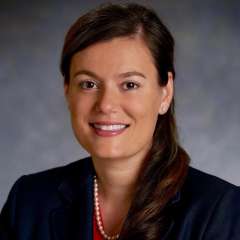
Associate Professor of Medicine
Associate Director, Specialty Training and Advanced Research (STAR) Program
Division of Endocrinology, Diabetes & Metabolism
Division of General Internal Medicine & Health Services Research
David Geffen School of Medicine at UCLA
Director, Network of Dedicated Enrollment Sites (NODES)
Core Investigator, HSR&D Center for the Study of Healthcare Innovation, Implementation & Policy (CSHIIP)
VA Greater Los Angeles Healthcare SystemDr. Moin obtained her dual MD/MBA from the University of California, Irvine and completed internal medicine residency training and chief residency at Yale. She then completed a clinical fellowship in endocrinology, diabetes and metabolism at UCLA followed by a VA fellowship in health services research, which included a master of science in health services (MSHS) from the Jonathan and Karin Fielding School of Public Health at UCLA. Dr. Moin’s research expertise includes comparative effectiveness research, pragmatic trials, and implementation science. She is a principal investigator on several multi-site NIH/NIDDK, CDC and VA funded projects. Dr. Moin has made a number of seminal contributions in the field of health services research, elucidating key insights regarding real-world effectiveness and implementation of evidence-based interventions for type 2 diabetes. Specifically, her studies have identified critical gaps in the quality of prediabetes care in the US and strategies that health systems, employers, and insurers can apply to mitigate gaps in practice. Dr. Moin also serves as an associate director for the Specialty Training and Advanced Research (STAR) Program at UCLA, the Justice, Equity, Diversity and Inclusion Academic Mentoring Program Council (JAM is a year-long mentorship program supporting underrepresented junior faculty), and the Research Mentoring Core for the UCLA LIFT-UP network (a new NIDDK-funded center to advance scientists from diverse backgrounds). Dr. Moin Profile(Link is external)
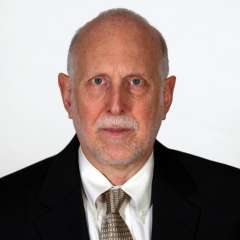
Chief, Hepatology and Director, NODES, VA Long Beach Healthcare System
Director, VA National Liver Disease Program
Deputy Director, National Gastroenterology and Hepatology Program Office
Professor of Medicine, University of California, Irvine, CADr. Morgan is director of the VA National Liver Disease Program, which oversees the policies and practice of liver disease care in the Veterans Healthcare System. He is responsible for management of NAFLD in the VA, including criteria the VA can use to identify patients with NAFLD, the education of VA providers on identifying and evaluating patients with NAFLD risk factors, evaluating tests for the diagnosis and monitoring of NASH, and developing criteria for pharmacotherapy of NASH. He was the chair of the VA multidisciplinary group that released guidelines for the management of NAFLD in the VA healthcare system in 2021. He has participated in pharma, VA, and NIH sponsored clinical trials in liver disease for the past 30 years and has been the chair of DSMBs for multiple clinical trials.
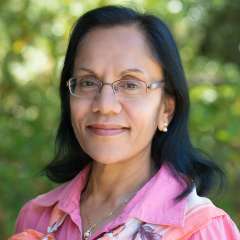
Endowed Professor and Chair, Department of Diabetes Complications and Metabolism
Beckman Research Institute
Deputy Director, Arthur Riggs Diabetes and Metabolism Research Institute
City of HopeDr. Natarajan is an endowed professor and chair of the Department of Diabetes Complications and Metabolism at the Beckman Research Institute of City of Hope. She is also the deputy director of the Arthur Riggs Diabetes and Metabolism Research Institute. She did postdoctoral research at USC medical school and has been at City of Hope for 33 years. She is a well-established investigator with over 30 years of experience in the field of diabetes. Her major area of research is in the investigation of cellular and molecular mechanisms associated with diabetes, obesity, and related accelerated vascular complications such as atherosclerosis and diabetic kidney disease (nephropathy), with specific emphasis on epigenetics and non-coding RNAs. She investigates mechanisms by which growth factors, lipids, cytokines, microRNAs, long non-coding RNAs and epigenetic factors augment inflammatory and fibrotic genes under diabetic conditions in target cells and in animal models of diabetes and obesity. She is also utilizing cells from diabetic patients to examine epigenetic mechanisms associated with the pathogenesis of human diabetes and diabetic complications, as well as in the phenomenon of metabolic memory. Her laboratory utilizes several state-of-the art genomic, transcriptomic and epigenomic approaches including ChIP-Seq, RNA-seq, ATAC-seq, HiC and EWAS. Dr. Natarajan also evaluates translational approaches targeting epigenetic factors and non-coding RNAs for the treatment of diabetic complications. Her studies have been continuously funded by the National Institutes of Health for over 30 years. She has published over 200 papers and received numerous awards, including the Arti Hurria Mentoring Award, Mentor of Women Award, and the Edwin Bierman Award. Dr. Natarajan is also very active in teaching, training, and mentoring graduate students, postdoctoral fellows, and junior faculty, and is an MPI on a NIDDK T32 training grant. She serves on the Editorial Boards of Kidney Intl, Journal of the Am. Soc. Nephrol., ATVB, and Am J. Physiology (Renal), and on the advisory boards of other journals. She serves on the peer review committees of the American Diabetes Association, Juvenile Diabetes Research Foundation, and the National Institutes of Health. Natarajan Lab(Link is external)
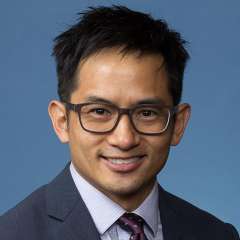
Assistant Professor of Medicine
Vatche and Tamar Manoukian Division of Digestive Diseases
David Geffen School of Medicine at UCLADr. Nguyen received his bachelor’s degree in molecular and cell biology from the University of California, Berkeley. Through the Tri-Institutional MD-PhD Program, he earned his medical degree from Weill Cornell Medical College and doctoral degree from The Rockefeller University. For his graduate work, he studied metabolic mechanisms that drive colorectal cancer metastasis using large-scale functional genomic screening and xenograft animal models. Dr. Nguyen completed his internal medicine residency and gastroenterology fellowship at UCLA. He performed post-doctoral research under the mentorship of Dr. Peter Tontonoz studying the regulation of lipid metabolism. His fellowship research training was supported by the UCLA Specialty Training and Advanced Research (STAR) program and a NIH T32 UCLA GI training grant. In 2023, Dr. Nguyen joined the faculty at the UCLA Vatche and Tamar Manoukian Division of Digestive Diseases. He was awarded an Emerging Generation Award from the American Society for Clinical Investigation and the Research Scholar Award from the American Gastroenterological Association. His current studies focus on a methyltransferase that is involved in the regulation of liver lipid metabolism. His goal is to understand lipid regulation in the liver to better diagnose and treat steatotic liver disease. Dr. Nguyen is board certified in internal medicine and board eligible for gastroenterology. Nguyen Lab
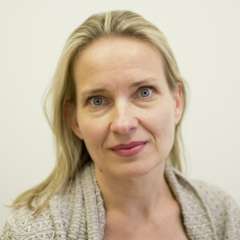
Professor of Human Genetics
Diller-von Furstenberg Family Endowed Chair in Precision Clinical Genomics
Vice Chair, Department of Human Genetics
Director, Cardiometabolic Genomics, Institute for Precision Health
Director, Genetics and Genomics PhD Program
David Geffen School of Medicine at UCLADr. Pajukanta's research group is identifying biological mechanisms of DNA variants and genes involved in complex cardiovascular and metabolic disorders using integrative genomics approaches. Her research aims to discover gene-environment interactions and context-specific transcriptional and epigenomic effects contributing to cardiometabolic disorders in Mexicans and Europeans by integrating transcriptomics, epigenomics, and genomics data with deep clinical and histology-based phenotype and electronic medical record data. Dr. Pajukanta is especially interested in single cell RNA-sequencing studies of metabolic tissues to decompose cell-type proportions and cell-type specific expression of genes and their connections to cardiometabolic traits; as well as in genomic studies of the admixed Mexican population that has been underrepresented in genomic studies despite their high predisposition to obesity, type 2 diabetes, dyslipidemias, fatty liver disease, and other cardiometabolic disorders. Dr. Pajukanta has served as a principal investigator in several NIH R01 grants and as a project leader of an NIH PPG grant. She has trained multiple undergraduate, graduate, and postdoctoral students; taught graduate level courses; and served as a problem-based learning tutor of medical students. She is also the director of the genetics and genomics home area of graduate education at UCLA; the vice chair in the Department of Human Genetics at UCLA; and the director of cardiometabolic genomics at the Institute for Precision Health at UCLA. Dr. Pajukanta Profile(Link is external)
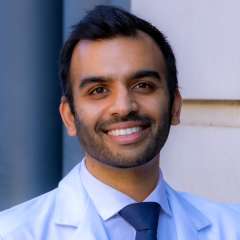
Assistant Clinical Professor of Medicine
Vatche and Tamar Manoukian Division of Digestive Diseases
David Geffen School of Medicine at UCLADr. Patel earned his bachelor of science at Pennsylvania State University and received his medical degree from Jefferson Medical College, where he graduated summa cum laude and was awarded membership in Alpha Omega Alpha (AOA) and the Gold Humanism Honor Society (GHHS). He completed his internship and residency at the Hospital of the University of Pennsylvania before beginning his fellowship training at the Vatche and Tamar Manoukian Division of Digestive Diseases at UCLA in 2014. During fellowship, Dr. Patel joined the UCLA Specialty Training and Advanced Research (STAR) and the NRSA (National Research Service Award) T32 Primary Care Research Fellowship programs through the Department of Medicine. This support allowed him to complete a PhD in health policy and management through the Fielding School of Public Health at UCLA in 2020. His thesis focused on describing advance care planning in patients with decompensated cirrhosis at liver transplant centers. Dr. Patel also completed additional clinical training in transplant hepatology at the Icahn School of Medicine at Mount Sinai from 2018 to 2019. During this year, he was awarded the opportunity to serve as a visiting scholar at the Hastings Center. In 2020, Dr. Patel joined the faculty at the UCLA Vatche and Tamar Manoukian Division of Digestive Diseases as an assistant clinical professor of medicine. Dr. Patel’s research focuses on describing, measuring and improving the quality of palliative care delivered to patients with serious liver-related illnesses, as well as its effect on their caregivers. He has particular interests in improving communication regarding goals of care, caregiver burden, symptom management and end of life care. In 2018, he was the recipient of the Advanced/Transplant Hepatology Fellowship Award, which provided funding for his project, “Improving Advance Care Planning in End Stage Liver Disease.” Dr. Patel’s research has been published in a number of journals, including JAMA Internal Medicine, Annals of Internal Medicine, Hepatology, Clinical Gastroenterology and Hepatology, Journal of Pain and Symptom Management, Liver Transplantation, Clinical Liver Diseases, and Digestive Diseases and Sciences. He is an active member of the American Association for the Study of Liver Diseases (AASLD) and the American Academy of Hospice and Palliative Medicine (AAHPM). Patel Lab
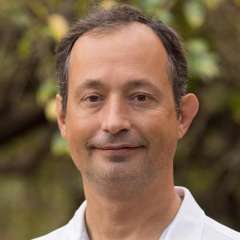
Professor
Department of Molecular, Cell and Developmental Biology
UCLA College of Life SciencesDr. Pellegrini is a biophysicist who has served on the UCLA Life Sciences Division faculty since he joined the Department of Molecular, Cell and Developmental Biology in 2005. Dr. Pellegrini earned his BA in physics at Columbia University and his PhD in physics at Stanford. He was a postdoctoral fellow at UCLA, where he worked on computational biology. Following his postdoctoral studies, Dr. Pellegrini co-founded a start-up company and later worked for the pharmaceutical company, Merck, before returning to UCLA. His laboratory research centers on the development of novel computational approaches to analyze large-scale genomic data. The Pellegrini group was instrumental in the development of whole genome bisulfite sequencing to measure the methylation status of nearly every cytosine in the genome. His present focus is on data produced using the latest generation of high-throughput sequencers. Today the Pellegrini group is developing suites of tools for the analysis of high-throughput sequencing data such as methC-seq, RNA-seq, and scRNA-seq. These approaches have been used in many settings, including biomarker discovery. Matteo Pellegrini Lab(Link is external)
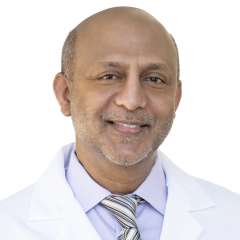
Clinical Associate Professor, Department of Pathology
Director, Research Molecular Pathology and Research Histology Laboratories
City of Hope National Medical CenterDr. Pillai is an associate clinical professor specializing in molecular pathology, hematopathology, and pathology bioinformatics. He is also a member of the Toni Stephenson Lymphoma Center. Dr. Pillai completed a post-doctoral training in immunology followed by residency in anatomic and clinical pathology at University of Southern California, and subsequent dual fellowships in molecular genetic pathology and hematopathology at University of Pittsburgh Medical Center. Dr. Pillai's research interests include spatial biology of cancers and the application of panomics technologies in diagnostic pathology. Triple board-certified in anatomic and clinical pathology, molecular genetic pathology and hematopathology, he is an active member of multiple professional associations, and has published more than 50 peer-reviewed publications, abstracts and book chapters. Dr. Pillai Profile(Link is external)
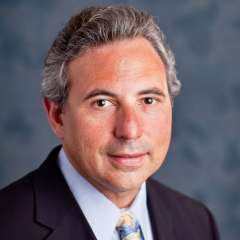
Chief, Division of Gastroenterology, Hepatology and Parenteral Nutrition
Veterans Administration Greater Los Angeles Healthcare System, Wadsworth VA
Professor-In-Residence of Medicine and Human Genetics
David Geffen School of Medicine at UCLADr. Pisegna’s main research interest is the molecular pharmacology of hormones and receptors in the gastrointestinal tract. These research and clinical interests derive from research in the biochemistry and molecular physiology of neuroendocrine tumors as well as an understanding of the molecular interaction of peptide hormones and their receptors. His clinical efforts are currently focused on the management of gastric hypersecretory conditions, neuroendocrine tumors of the GI tract, and Zollinger Ellison Syndrome (ZES), medical conditions that derive from alterations in the expression of gastrointestinal hormones. Dr. Pisegna cloned the receptor for human cholecystokinin A (CCKA), the cholecystokinin B (CCKB or gastrin) receptor and the pituitary adenylate cyclase activating polypeptide (PACAP) receptor. He has previously demonstrated that PACAP is a potent stimulant of gastric acid secretion and is expressed on neurons innervating the stomach, on enterochromaffin-like cells (ECL) of the stomach expressing receptors for PACAP. Using mice lacking the PAC1 receptor, he has demonstrated that the mice develop a gastric acid hypersecretory condition resulting from hypergastrinemia. Recently his lab is focused on understanding the role of peptide hormones in the development of obesity, metabolic syndrome and NAFLD. Dr. Pisegna's research interests extend to understanding the molecular mechanisms involved in satiety and metabolic syndrome including the role of the gastrointestinal microbiome.

Professor and Vice Chair, Human Genetics
Associate Director, UCLA/Caltech Medical Scientist Training Program
David Geffen School of Medicine at UCLAThe Reue laboratory is interested in the identification of genes, pathways, and the role of sex in the development of traits underlying the Metabolic Syndrome, including obesity, dyslipidemia, and insulin resistance. Using genetic manipulation in mouse models, our findings have revealed independent roles for gonadal hormones and genetic sex (XX vs. XY chromosomes) in dietary lipid absorption, regulation of circulating lipid levels, development of adipose tissue, mitochondrial function, and statin-related diabetes. Laboratory of Karen Reue(Link is external)
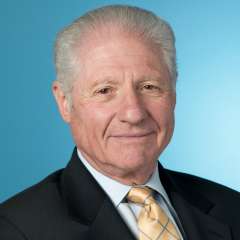
Hirschberg Memorial Chair in Pancreatic Cancer Research
Director, UCLA: Digestive Diseases Research Center
Distinguished Professor of Medicine
Vatche and Tamar Manoukian Division of Digestive Diseases
David Geffen School of Medicine at UCLADr. Rozengurt discovered that neuro-hormonal signals (e.g., peptides of the bombesin family) which act as molecular messengers in a rich network of information exchange throughout the organism via GPCRs, are potent cellular growth factors for multiple cell types in culture, including intestinal and pancreatic epithelial cells and function as autocrine/paracrine mitogens for human cancer cells. He studies the transmission of the neuro-hormonal signal from surface receptors to the nucleus along a number of transduction pathways, typically protein kinase cascades, that act in a synergistic and combinatorial fashion to regulate gene-regulatory networks leading to cell migration and proliferation. In the course of this work, he reported on the cloning and expression analysis of a novel protein kinase termed protein kinase D (PKD). PKD is directly activated by the potent tumor promotors of the phorbol ester family and also is part of a novel phosphorylation cascade downstream of protein kinase C (PKC). Research activities in this area include a detailed mutational analysis to define the contribution of different domains of PKD to its regulation, modulation of its expression to determine the role of PKD in cell regulation and development of animal models with over-expression or under-expression of PKD in the epithelial cells of the digestive system. In addition to serine/threonine protein kinase cascades, his studies demonstrated that neuropeptides also stimulate a rapid increase in the tyrosine phosphorylation of multiple substrates including focal adhesion kinase (FAK), paxillin, and Crk-associated substrate (CAS). These proteins localize at focal adhesion plaques and are implicated in cell migration, proliferation, and transformation. The signals converge on the transcriptional co-activators YAP and TAZ, which are emerging as potent oncogenes in pancreatic cancer. The work of Dr. Rozengurt is dissecting the molecular mechanisms by which neuro-hormonal agonists and growth factors induce these downstream pathways in intestinal and pancreatic epithelial cancer cells and is elucidating the role of these pathways in cell migration, proliferation and cancer. This work is also identifying inhibitors that block the signaling network at different steps and thus provides novel approaches for the treatment of proliferative diseases of the digestive system. Rozengurt Lab
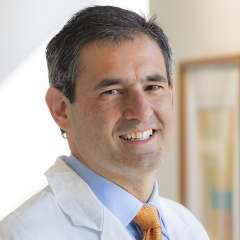
Medical Director, Pfleger Liver Institute
Medical Director, Adult Liver Transplant Program
Chief, Transplant Hepatology
Head, Outcomes Research in Hepatology
Professor of Medicine and Surgery
Adjunct Professor of Nursing
David Geffen School of Medicine at UCLA
Professor (Hon), California Northstate University College of Medicine
Associate Editor for Liver, Journal of Clinical GastroenterologyDr. Saab received his BS, MD and MPH degrees from UCLA. He completed his residency in internal medicine at the University of California at San Diego Medical Center and a fellowship in gastroenterology/hepatology at the UCLA Center for Health Sciences. Dr. Saab is board eligible in gastroenterology and internal medicine, and board certified in transplant hepatology. He has received honorary fellowships from the American Gastroenterology Association (AGAF), American College of Gastroenterology (FACG) and the American Association for the Study of Liver Diseases (FAASLD). Dr. Saab serves on many local, national and international committees. He is on board of directors for several liver-oriented foundations such as the American Liver Foundation, Liver Wellness Foundation and the Chronic Liver Disease Foundation. Dr. Saab has been an investigator in multiple clinical trials and is a frequently invited speaker worldwide. Dr. Saab originated and leads a popular annual patient education seminar and is co-chair of the Annual UCLA Liver Diseases Symposium for health care professionals. He has mentored many college and medical students, as well as medical residents and fellows in gastroenterology. Dr. Saab has published nearly 350 peer-reviewed manuscripts. He has authored numerous book chapters, editorials and abstracts. On the editorial board of over a dozen journals, Dr. Saab is the associate editor for the Journal of Clinical Gastroenterology, Digestive Medicine Research (DMR), and Journal of Clinical and Translational Hepatology. Dr. Saab Profile
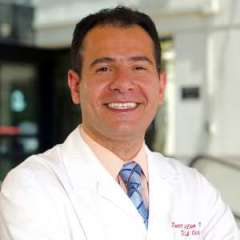
Vice Chair and Associate Professor
Division of Cardiology
Co-Director, UCLA Center for Cholesterol Management
Assistant Director, UCLA Specialty Training and Advanced Research (STAR) Program
David Geffen School of Medicine at UCLA Health SciencesDr. Sallam is a member of the Atherosclerosis Research Unit, Molecular Biology Institute (MBI), Molecular, Cellular and Integrative Physiology Program (MCIP), and Cardiovascular Theme Initiative at UCLA. Dr. Sallam graduated from the University of California, Irvine School of Medicine. He completed residency and chief residency training in Internal Medicine at Yale, followed by cardiology fellowship training at UCLA. Dr. Sallam graduated from the STAR program at UCLA earning a PhD in molecular, cellular and integrative physiology in the HHMI Lab of Peter Tontonoz. He joined the UCLA faculty after fellowship, where his research investigates the role of novel transcription factor regulatory circuits in cardiometabolic disease. In 2015, Dr. Sallam has been awarded the Lauren B. Leichtman and Arthur E. Levine Cardiovascular Discovery Fund investigatorship at UCLA. Dr. Sallam is the recipient of multiple independent NIH grants, American College of Cardiology Presidential Career Development Award, Burroughs Wellcome Fund Career Award for Medical Scientists, and American Society for Clinical Investigation Young Investigator Award. Laboratory of Tamer Sallam, MD, PhD(Link is external)
 Associate Professor, Department of Medicine, Pulmonary and Critical CareDavid Geffen School of Medicine at UCLAMember, Cancer Molecular Imaging, Nanotechnology and Theranostics
Associate Professor, Department of Medicine, Pulmonary and Critical CareDavid Geffen School of Medicine at UCLAMember, Cancer Molecular Imaging, Nanotechnology and TheranosticsDr. Scafoglio completed his MD and PhD degrees in oncology and immunology in Naples, Italy at the Seconda Universita’ degli Studi di Napoli. He received post-doctoral training at UC San Diego in molecular medicine focusing on molecular mechanisms of transcriptional and epigenetic regulation, and a second postdoctoral training at UCLA in oncological molecular imaging (an NIH-funded T32 program). At UCLA, he led projects investigating glucose uptake and utilization in cancer, resulting in publications in the Proceedings of the National Academy of Science (2015), Science Translational Medicine (2018), and Cancer Research (2024). In 2017, he joined the pulmonary and critical care medicine faculty for his studies on the role of glucose transporter SGLT2 as a diagnostic and therapeutic target in lung cancer. In 2025, he joined the UCLA Comprehensive Liver Research Center for his interest in 1) the efficacy of SGLT2 inhibitors as chemopreventive agents for hepatocellular carcinoma; 2) the role of nutritional alpha-ketoglutarate supplementation as a chemopreventive strategy for liver cancer; 3) the beneficial activity of oral alpha-ketoglutarate on liver inflammation and in prevention of liver steatosis. Dr. Scafoglio Profile
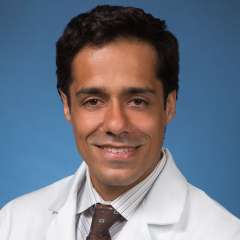
Dr. Sedarat joined UCLA in 2013 as a member of the interventional endoscopy within the Vatche and Tamar Manoukian Division of Digestive Diseases. His clinical interests encompass the development and application of advanced endoscopic techniques and interventions to diagnose, stage, treat and palliate a range of benign and malignant gastrointestinal disorders. He is proficient in the application of advanced endoscopic techniques including therapeutic ERCP, EUS with fine needle aspiration and biopsy, ERCP in surgically altered anatomy, interventional EUS (such as biliary drainage or rendezvous procedures, pancreas pseudocyst drainage, pancreas necrosectomy, fiducial placement and abscess drainage), pancreatic and biliary endotherapy, endoluminal stenting, endoscopic mucosal resection (EMR), endoscopic submucosal dissection (ESD), complex polypectomy, tumor ablation, deep (device assisted) enteroscopy, endoscopic fistula and leak closure, complex stricture dilation and endotherapy, endoscopic treatment of Barrett’s esophagus with mucosal resection and radiofrequency ablation, endoscopic antireflux procedures, Zenkers’ diverticulum myotomy, endoscopic management of surgical complications, and chromoendoscopy. Dr. Sedarat also performs bariatric endoscopy, including primary endoscopic therapies for obesity, endoscopic treatment of weight regain following bariatric surgery, and treatment of post-surgical complications. He started the program at UCLA to offer the POEM procedure (peroral endoscopic myotomy) as treatment option for patients with achalasia and spastic disorders of the esophagus. His research interests include endoscopic device development and application as well as evaluation of existing and emerging endoscopic technologies with a focus on improving patient outcomes. He is interested in the application of the emerging fields of submucosal and transluminal endoscopy, including endoscopic submucosal dissection (ESD) for early tumor resection, POEM, and application of devices and techniques to treat gastrointestinal disorders that traditionally were managed surgically. Dr. Sedarat completed his residency in internal medicine at the University of Pennsylvania. He completed his fellowship in gastroenterology here at UCLA and returned to UPenn to complete an advanced endoscopy fellowship. He is board certified in gastroenterology and is a member of the American Society of Gastrointestinal Endoscopy. Dr. Sedarat Profile
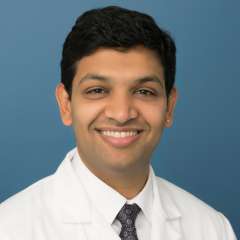
Health Sciences Assistant Clinical Professor of Medicine and Surgery
Vatche and Tamar Manoukian Division of Digestive Diseases
Pfleger Liver Institute
Dumont-UCLA Liver Transplant Center
David Geffen School of Medicine at UCLADr. Shetty received his BS in biomedical engineering from Georgia Institute of Technology. He completed medical school at Medical College of Georgia at Augusta State University and completed his residency in internal medicine at Emory University. This was followed by a fellowship in gastroenterology at Medical University of South Carolina, and he then came to University of California, Los Angeles for his transplant hepatology fellowship. He is board certified in internal medicine, gastroenterology and transplant hepatology. Dr. Shetty specializes in general and transplant hepatology with a special interest in alcohol-related liver disease and metabolic syndrome associated liver disease. His philosophy as a physician is to practice patient-centered medicine in a caring and supportive environment. As a hepatology specialist, he is committed to providing high-quality, cost-effective health care to help patients with all types of liver disease achieve the best possible quality of life. Dr. Shetty Profile

Health Sciences Clinical Instructor of Medicine and Surgery
Vatche and Tamar Manoukian Division of Digestive Diseases
Pfleger Liver Institute
Dumont-UCLA Liver Transplant Center
David Geffen School of Medicine at UCLADr. Singh specializes in general and transplant hepatology and treats patients across the spectrum of liver disease, from benign liver conditions to complications of cirrhosis and liver transplant evaluation. She also provides post-transplant care. Dr. Singh has a particular interest in alcohol-related liver disease and hepatocellular carcinoma. Dr. Singh graduated from Washington University in St. Louis, after which she dedicated one year to City Year, which is an AmeriCorps program focused on tutoring and mentoring high school students in schools with low graduation rates. She graduated from The Ohio State University College of Medicine and completed her internal medicine residency and gastroenterology fellowship at Loyola University Medical Center. She finished her training in transplant hepatology at the University of Southern California. Dr. Singh has been involved in clinical research in alcohol-related liver disease and hepatocellular carcinoma. She is board certified in internal medicine, gastroenterology and transplant hepatology. Dr. Singh Profile

Director, Comprehensive Liver Research Center at UCLA
Professor of Medicine
Vatche and Tamar Manoukian Division of Digestive Diseases
David Geffen School of Medicine at UCLADr. Singh earned his MBBS degree at the Medical College of the University of Calcutta in 2000, and his MD at PGIMER, Chandigarh, India in 2004. He joined the lab of Dr. Mark Czaja at the Marion Bessin Liver Research Center of the Albert Einstein College of Medicine to pursue postdoctoral training in basic liver research. In the course of his postdoctoral research (in collaboration with Dr. Ana Maria Cuervo), Dr. Singh discovered the process of lipophagy, a previously unknown way cells degrade fat stores. After successful postdoctoral training with first-author papers in high-impact journals such as Nature, Journal of Clinical Investigation, Hepatology, and the Journal of Biological Chemistry, and supported by a K award, Dr. Singh started his own lab at Albert Einstein in 2010. Since then, his lab has demonstrated novel roles of autophagy in the regulation of food intake (Cell Metabolism 2011 and EMBO reports 2012), energy metabolism (Cell Metabolism 2016), cell signaling (Nature Communications 2013), and the circadian clock (Cell Metabolism 2018). The Singh Lab has also developed a novel feeding intervention that protects against fatty liver and type II diabetes in various mouse models of obesity and aging without the need to cut caloric intake (Cell Metabolism 2017). The Singh Lab intends to initiate a human study at UCLA testing the impact of two meals a day on liver and systemic metabolism. The Singh Lab is funded by three R01 grants, a P01, and an R56, as well as training grants to his students, including an F31 fellowship. Current projects in the Singh Lab investigate novel integrative mechanisms regulating liver and systemic metabolism in models of aging and obesity. Dr. Singh is a standing member of the CMAD study section at the NIH. His research interests include autophagy, liver lipid metabolism, mTOR signaling and aging.

Assistant Professor, Department of Molecular and Medical Pharmacology
University of California Los AngelesDr. TeSlaa’s lab focuses on measuring metabolic fluxes and how they change during the development of disease. She received her PhD in molecular biology at UCLA where she studied the role that metabolism plays in the self-renewal and differentiation of human pluripotent stem cells. Her postdoctoral training was with Dr. Joshua Rabinowitz at Princeton University where she gained expertise in in vivo stable isotope tracing and metabolomics. Her postdoctoral work focused on understanding how different nutrients uniquely support organ specific metabolism including the finding that serine catabolism in the liver produces NADPH for de novo lipogenesis. In 2022, Dr. TeSlaa joined the faculty at UCLA and established her lab utilizing in vivo isotope tracing and mass spectrometry to gain a deeper understanding of how metabolism is altered in metabolic disease. One focus of the lab is understanding how liver metabolism is rewired during the development of metabolism-associated steatohepatitis. TeSlaa Lab(Link is external)
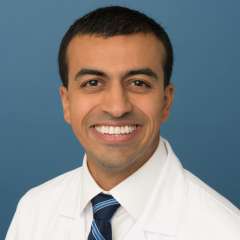
Health Sciences Assistant Clinical Professor of Medicine
Vatche and Tamar Manoukian Division of Digestive Diseases
David Geffen School of Medicine at UCLADr. Thaker is an advanced endoscopist with particular interest in bariatric and metabolic endoscopy as well as other minimally invasive endoscopic procedures which help fill the gap between medical management and traditional surgery. He is co-leading the bariatric endoscopy program at UCLA, which is now among the busiest endoscopic weight loss centers on the west coast. He frequently coordinates with a multidisciplinary team in the UCLA Center for Human Nutrition and the Center for Obesity and METabolic Health (COMET). Dr. Thaker performs endoscopic sleeve gastroplasty (ESG) for weight loss as well as gastric revision procedures, such as transoral outlet reduction (TORe) and sleeve revision, for patients who have regained weight after prior gastric surgery. He is also co-principal investigator on an innovative new procedure called Duodenal Mucosal Resurfacing (the Revitalize-1 Trial) to treat type 2 diabetes and fatty liver disease. He also performs the transoral incisionless fundoplication (TIF) procedure, which is a minimally invasive alternative to surgery for the treatment of acid reflux. In addition, Dr. Thaker has specialized training in other advanced therapies, including endoscopic mucosal resection (EMR) of large polyps; radiofrequency ablation for Barrett's esophagus and early esophageal cancer; stricture dilation; endoscopic retrograde cholangiopancreatography (ERCP); cholangioscopy; endoluminal stent placement; single and double-balloon enteroscopy; endoscopic suturing, fistula and leak closure; and endoscopic ultrasound (EUS) for cancer staging, fine needle aspiration/biopsy, EUS-guided gallbladder drainage, and other interventions. Dr. Thaker is board certified in gastroenterology and internal medicine. Dr. Thaker's research has focused on weight loss and metabolic therapies, eliminating endoscope-related infections to improve patient safety, helping to develop and implement the use of the world's first available disposable duodenoscope. He has multiple published multiple research studies, literature reviews, editorials, and chapters on these topics. Dr. Thaker serves on the national committee for the American Gastroenterological Association's (AGA) Center for GI Innovation and Technology (CGIT), which supports innovation and the development of new technologies for use in gastroenterology, hepatology, nutrition and obesity management. He is also co-chair of the AGAs educational program on Innovations in Duodenoscopes. He completed his undergraduate training in chemical engineering at UCLA before attending medical school at New York Medical College. He completed his internal medicine residency training at Beth Israel Deaconess Medical Center and Harvard Medical School in Boston, followed by gastroenterology fellowship and advanced endoscopy fellowship training at UCLA. In additional to performing procedures at UCLA Health campuses in Westwood and Santa Monica, Dr. Thaker performs advanced procedures in other Southern California locations. Dr. Thaker Profile
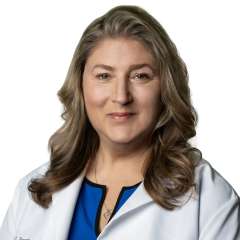
Director, Diabetes and Metabolism Research Institute, City of Hope Beckman Research Institute
Chan Soon-Shiong Shapiro Distinguished Chair in Diabetes Professor,
Department of Molecular & Cellular Endocrinology
City of HopeDr. Thurmond is the director of the Arthur Riggs Diabetes & Metabolism Research Institute (AR-DMRI), the Ruth B. & Robert K. Lanman Chair in Gene Regulation & Drug Discovery Research, as well as a professor and the founding chair of the Department of Molecular & Cellular Endocrinology at City of Hope (COH). After completing her PhD in biochemistry and molecular biology at the University of Iowa in 1997, she completed her postdoctoral work in physiology and biophysics. She joined the Indiana University School of Medicine (IUSM) faculty in 2001, quickly ascending to full professor and associate director of the Diabetes Center. In 2015, Dr. Thurmond moved to COH as the founding chair of the Department of Molecular and Cellular Endocrinology. At COH, she served as the deputy director of the Diabetes & Metabolism Research Institute in 2019 and became the director of the AR-DMRI in 2020. Her diabetes research focuses on the role of exocytosis proteins that regulate insulin secretion, peripheral glucose clearance, crosstalk between skeletal muscle and islet β-cells in maintaining glucose homeostasis, as well how enrichment of these exocytosis proteins can be harnessed as novel therapeutics for (pre)diabetes. She has published her research in top-tier journals including Nature Communications, Diabetes, Cell Metabolism, and Diabetologia. Dr. Thurmond’s research has been continuously funded by the NIH/NIDDK for over 20+ years, the Juvenile Diabetes Research Foundation, and the American Diabetes Association (ADA). Currently, she holds three NIH/NIDDK R01 grants, plus others from the JDRF and the Wanek Family Project for T1D (at COH) and is a program director of the NIDDK-funded T32 predoctoral program at COH. She and her research team hold five patents and have published nearly 100 peer-reviewed publications. Dr. Thurmond served on a NIDDK P30 Diabetes Research Center external advisory board panel, was the chair of the NIH panel Basic Mechanisms of Diabetes and Metabolism (BMDM, formerly CADO), was formerly a standing panel member of Molecular and Cellular Endocrinology and has served as chair/grant reviewer at JDRF, American Heart Association (AHA) and ADA; she also served as advisor to the Swedish Research Program. Dr. Thurmond has received numerous prestigious awards, including the Trailblazer in Research Award from IUSM, the coveted Carol Emmott Fellowship for Gender and Diversity Equity in Healthcare, and was the first woman ever to be awarded the Davidson Award in Physiology from the University of Toronto, Canada, as part of the Banting and Best Awards in Diabetes. Thurmond Lab(Link is external)
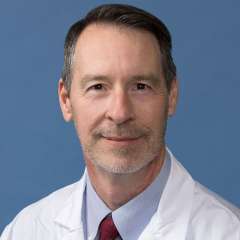
Distinguished Professor
Frances and Albert Piansky Chair
Department of Pathology and Laboratory Medicine
Department of Biological Chemistry
David Geffen School of Medicine at UCLADr. Tontonoz received his BA from Wesleyan University and his MD and PhD from Harvard Medical School. Dr. Tontonoz’s laboratory endeavors to understand regulatory pathways that govern cholesterol, fatty acid and phospholipid metabolism. His work has helped to reveal fundamental mechanisms by which animals maintain cellular and whole-body lipid homeostasis. His group has elucidated pathways for the control of lipid uptake, transport and efflux, and has shown how these pathways impact the function of immune cells and metabolic tissues in both physiology and disease. Dr. Tontonoz is a member of the National Academy of Sciences, the National Academy of Medicine, the American Society of Clinical Investigation, and the Association of American Physicians. He has received a number of national awards, including the Stanley J. Korsmeyer Award from the American Society of Clinical Investigation, The ATVB Distinguished Achievement Award and Jeffrey Hoeg Award from the American Heart Association, and the Richard Weitzman Award and Gerald D. Aurbach Award from the Endocrine Society. Dr. Tontonoz serves on many editorial boards, including those of Genes & Development, eLife, and the Journal of Clinical Investigation. The Tontonoz Lab(Link is external)
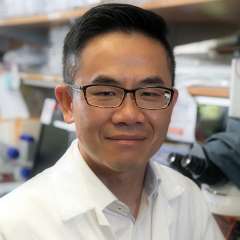
Professor
Department of Molecular and Medical Pharmacology
Crump Institute for Molecular Imaging
David Geffen School of Medicine at UCLA
As a faculty member at UCLA Medical School with expertise in chemistry and bioengineering, Dr. Tseng directs an interdisciplinary research team focused on developing liquid biopsy-based diagnostic technologies for cancer and prenatal diseases. To transition these diagnostic technologies into a clinical context, Dr. Tseng has established an extensive collaboration network with pathology and oncology programs at both UCLA and Cedars-Sinai Medical Center, along with other prominent medical institutions across the United States. To further facilitate the commercial adoption of these in vitro diagnostic assays, Dr. Tseng founded CytoLumina Technologies and Eximius Diagnostics (Dx). These biotechnology companies have secured licenses for intellectual properties from UCLA. In October 2019, CytoLumina's NanoVelcro Chips earned recognition as one of the "Success Stories" by the NCI Innovative Molecular Analysis Technologies (IMAT) program. In December 2022, Eximius Dx's Liver Cancer Test was granted an FDA Breakthrough Device Designation (BDD), thereby accelerating its path toward de novo approval. UCLA Liquid Biopsy Laboratory(Link is external) | Dr. Tseng Profile(Link is external)
Associate Professor
Department of Medicine, Division of Cardiology and Department of Biological Chemistry
Director, Molecular Biology Interdepartmental Doctoral Program (MBIDP) GREAT Home Area
David Geffen School of Medicine at UCLADr. Vallim is an associate professor in the Departments of Medicine, Cardiology and Biological Chemistry at UCLA. He is also the director of the Gene Regulation, Epigenomics, and Transcriptomics within the Molecular Biology Interdepartmental Doctoral Program (MBIDP). He received his undergraduate degree in biochemistry and biological chemistry from the University of Nottingham in England, and his PhD in nutritional biochemistry also at the University of Nottingham. He then moved to complete his postdoc at UCLA on lipid metabolism and nuclear receptors. Dr. Vallim started his lab at UCLA in 2013, and his lab studies in how changes in lipid metabolism impact cardiometabolic disease, with a particular focus in the role of specialized lipids, such as bile acids, in the gut-liver axis affect normal liver physiology and disease. The Tarling-Vallim Lab(Link is external)

Associate Professor, Integrative Biology and Physiology
Member of the Metabolism Theme at UCLA
College of Life SciencesDr. Villanueva studies transcriptional pathways involved in nutrient sensing, gene expression, and lipid metabolism. His research aims to understand the role of the adipose tissue in the physiological and pathophysiological adaptation to nutrient overload. The adipose tissue can undergo dramatic restructuring in obesity, where there is cellular infiltration of various immune cell types and depletion of progenitor cells that give rise to new adipocytes. The recruitment of new adipocytes to the adipose tissue is essential to maintain metabolic homeostasis. His lab aims to understand how metabolic programs are transcriptionally regulated to identify new strategies to treat metabolic diseases like diabetes. Dr. Villanueva’s lab is in the metabolism theme space, a collaborative group of investigators that bring together clinical faculty with basic scientists studying the links between metabolism and health. The Metabolism Research Theme was recently launched at UCLA as a strategic research initiative to position investigators in a collaborative environment to confront the diabetes epidemic with new treatments and knowledge for prevention. Dr. Villanueva is involved in several efforts that support institutional transformation to have a long-lasting impact on inclusive excellence. As an assistant professor at the University of Utah, he helped to start a SACNAS chapter that began with a few graduate students, and now has 50+ trainees that participate regularly. He received the Inclusive Excellence Award at the University of Utah for developing and implementing innovative recruitment practices for the Bioscience Graduate Program, which led to an increase in recruitment and enrollment of underrepresented students, from an average of 6% to 30%. Dr. Villanueva was recruited to UCLA as a mentor professor, a recruitment strategy to identify candidates with both an excellent research record and experience in supporting initiatives that support a diverse student body. Dr. Villanueva is co-director of the NIH funded IRACDA program that is designed to train postdocs to acquire faculty positions in biomedical research. This program trains postdoctoral fellows to use innovative pedagogical practices that can be implemented in college courses to increase retainment of underrepresented groups in the sciences. He also leads the research mentor core for basic science for junior scientists at UCLA through LIFT-UP (Leveraging Institutional Support for Talented, Underrepresented Physicians and/or Scientists). He is also the faculty advisor for the MBI program and has been involved in several faculty hiring initiatives at UCLA. Dr. Villanueva has made every effort to advocate for groups historically underrepresented in science and to develop an innovative research program. Villanueva Lab(Link is external) | Institutional Research and Academic Career Development Award (IRACDA)(Link is external)
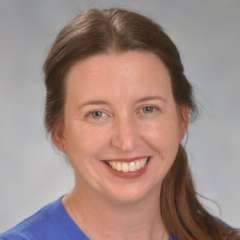
Associate Professor of Medicine
Division of General Internal Medicine and Health Services Research
Core Investigator, VA Center for the Study of Healthcare Innovation, Implementation & Policy (CSHIIP)
Director, Palliative Care Research, Department of Medicine at UCLA and the VA Greater Los Angeles Healthcare System
Consulting Researcher, RAND Health
Assistant Medical Director, UCLA Health Advance Care Planning ProgramDr. Walling's research focuses on palliative care quality measurement and stakeholder-partnered implementation studies with the goal of improving evidence-based care for patients with serious illness. Dr. Walling's work with quality measures has led in part to the National Quality Forum’s endorsement for RAND's end-of-life quality indicators. She was recently named a fellow of the American Academy of Hospice and Palliative Medicine (AAHPM) and is a Sojourns Scholar Leadership Program grantee (Cambia Health Foundation). Dr. Walling is PI and co-PI for grants and contracts from federal and non-federal sources including the Department of Veterans Affairs, Patient-Centered Outcomes Research Institute (PCORI), the California Health Care Foundation, and has served as co-investigator on several other awards including from the National Institute of Health.Dr. Walling Profile(Link is external)
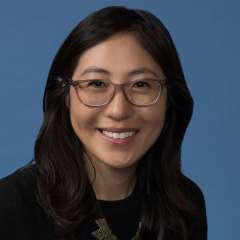
Assistant Clinical Professor, Department of Pediatrics
Division of Gastroenterology, Hepatology & Nutrition
UCLA Mattel Children’s HospitalAfter earning a BS in biology from UC San Diego, Dr. Whang attended medical school in California at Loma Linda University. She remained at Loma Linda University Medical Center for her pediatric residency, then returned to UCLA for a pediatric gastroenterology fellowship. Dr. Whang is board certified in pediatric gastroenterology and general pediatrics.
Dr. Whang is actively involved in cholesterol metabolism research in the Tontonoz Lab. She has been funded by the Children’s Discovery Institute and received a Junior Faculty Career Development Award. Through her ongoing work, she is studying changes in cholesterol metabolism following bariatric surgery. She has established a murine model of vertical sleeve gastrectomy to investigate cholesterol metabolic pathways, including absorption, hepatic uptake, hepatocellular cholesterol transport, and hepatobiliary excretion. Under the mentorship of Dr. Peter Tontonoz, Dr. Whang investigated the function of a cholesterol binding protein, called Aster, that facilitates intracellular cholesterol transport. Her contributions to this project involved the establishment of an enteroid model to study cholesterol absorption ex-vivo and to visualize intracellular Aster movement.
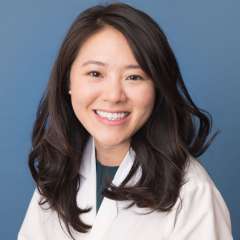
Health Sciences Assistant Clinical Professor of Medicine
Vatche and Tamar Manoukian Division of Digestive Diseases
Pfleger Liver Institute
Dumont-UCLA Liver Transplant Center
David Geffen School of Medicine at UCLADr. Wong is a transplant hepatologist with expertise in caring for patients across the continuum of liver disease from diagnosis to post-liver transplantation. She practices at Ronald Reagan UCLA Medical Center and the Pfleger Liver Institute. Dr. Wong also conducts public health research to improve the quality of care and health outcomes for populations with chronic liver disease. Her research leverages epidemiological and health services methods to perform multilevel risk assessments in populations with chronic liver disease to achieve earlier detection of liver disease and reduce barriers to health care access and utilization for groups with socioeconomic disparities. Dr. Wong received her bachelor's degree in public health from the University of California, Berkeley and medical degree from Stony Brook University School of Medicine in New York, where she was inducted into the Gold Humanism Honor Society. She completed her clinical training in the Yale Traditional Internal Medicine Residency Program and gastroenterology and advanced transplant hepatology fellowships at UCLA. With support from the UCLA Specialty Training and Advanced Research and Ruth L. Kirshstein National Research Service Award T32 fellowship programs, she completed her doctorate training in the Department of Health Policy and Management at the UCLA Fielding School of Public Health. Dr. Wong is board certified in internal medicine, gastroenterology, and transplant hepatology. Wong Lab
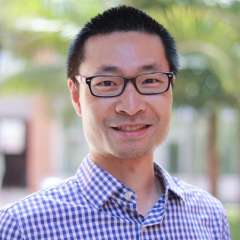
Associate Professor
Magnetic Resonance Research Labs
Department of Radiological Sciences
Physics and Biology in Medicine Interdepartmental Program (IDP)
David Geffen School of Medicine at UCLA
Department of Bioengineering
UCLA Samueli School of EngineeringDr. Wu's lab research focuses on the development and translation of quantitative magnetic resonance imaging (MRI) and MRI-guided interventions for cancer and metabolic diseases. Specific areas of interest include quantitative MRI and integrated diagnostics in prostate cancer, free-breathing quantitative MRI and MR elastography (MRE) in adult and pediatric liver diseases, quantitative placental and fetal MRI, real-time MRI, MRI-guided targeted biopsy and focal ablation, MRI-compatible robotics, MRI-guided nano-theranostics, and artificial intelligence for MRI. Prior to joining UCLA, Dr. Wu obtained his PhD in electrical engineering at Stanford University in 2009 and completed postdoctoral training at Stanford University Medical Center in 2012. His group’s research is funded by the NIH (NCI, NIDDK, NIBIB), industry partners, and institutional programs. He is also an active member of the UCLA Jonsson Comprehensive Cancer Center (JCCC) and the California NanoSystems Institute (CNSI) Wu Lab(Link is external)

Professor, Department of Integrative Biology and Physiology
Professor, Department of Molecular & Medical Pharmacology
Vice Chair, Molecular, Cellular, and Integrative Physiology (MCIP) PhD Interdepartmental Program
Vice Chair, Computational and Systems Biology (CaSB) Undergraduate Interdepartmental Program
UCLADr. Yang's lab specializes in developing computational tools to integrate multiomics data (genetic, transcriptome, epigenome, proteome, metabolome, and microbiome) and model multitissue multiomics networks underlying complex diseases. She received her PhD in molecular genetics and bioinformatics from Georgia State University and then did postdoctoral training in systems genetics at UCLA. She was subsequently senior research scientist at Rosetta Inpharmatics/Merck & Co and then principal scientist and director of Systems Biology at Sage Bionetworks, before returning to UCLA as a faculty. Her experiences in both industry and academia enable a broad research portfolio from computational tool development and disease mechanism investigations to drug discovery and environmental exposure studies using multiomics approaches. YangLab
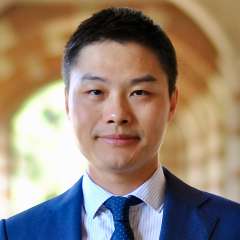
Zhenqi Zhou, PhD
Assistant Professor, Division of Endocrinology, Department of Medicine
David Geffen School of Medicine at UCLADr. Zhou received his PhD in molecular and cellular biology at the University of Arkansas and completed his post-doctoral fellowship at UCLA. His research group is dedicated to investigating the pathophysiology of metabolic disorders, with a specific interest in inter-organ communication. His group has focused on the impacts of mitochondrial quality control on metabolic dysfunction. Additionally, his group seeks to identify novel myokines/adipokines that contribute to the beneficial effects of exercise and elucidate their impact on the pathophysiology of metabolic diseases. Dr. Zhou Profile(Link is external)
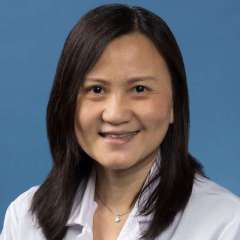
Department of Pathology and Laboratory Medicine
David Geffen School of Medicine at UCLAWith a long-standing track record, Dr. Zhou has been at the forefront of developing innovative methods in the fields of liquid biopsy and precision medicine. Her laboratory has pioneered a series of computational and experimental techniques for the detection and characterization of cancer using cell-free DNA. Notable among these methods are cfMethyl-Seq, cfSNV, cfTrack, cfSort, CancerDetector, and CancerLocator.
Dr. Zhou possesses extensive experience in managing and coordinating large-scale research collaborations. She currently serves as the contact Principal Investigator (PI) for several NIH-funded projects focusing on early cancer detection and health monitoring, including the UCLA Center for the Early Detection of Liver Cancer. Previously, she served as the contact PI for the Knowledge Base and Coordination Center of the MAPGen Consortium, which centered on Mechanism-Associated Phenotypes for Genetic Analyses from 2011 to 2016. Dr. Zhou has served as a standing member of the NIH Study Section of Biodata Management and Analysis from 2010 to 2016. She is also a frequent panelist on various NIH review panels.
Dr. Zhou's academic journey includes earning a degree in biochemistry from the University of Tubingen in Germany. Subsequently, she completed a Nachdiplom in computer science and obtained her PhD in bioinformatics from the Swiss Federal Institute of Technology. Her postdoctoral training in Biostatistics was conducted at Harvard University. Dr. Zhou has received the NSF CAREER Award and the Alfred P. Sloan Fellowship. Zhou Lab(Link is external)
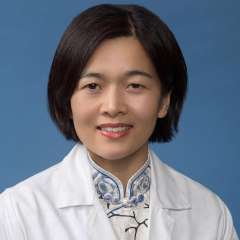
Assistant Professor Department of Pathology and Laboratory Medicine
Department of Molecular and Medical Pharmacology
David Geffen School of Medicine at UCLADr. Zhu’s research focuses on the development of liquid biopsy-based technologies for non-invasive diagnostics in the fields of cancer and maternal-fetal medicine. Additionally, she serves as the co-director of the UCLA Liquid Biopsy Laboratory, overseeing liquid biopsy research projects in collaboration with Dr. Tseng. With continuous support from NIH/NCI, their shared goal is to facilitate the clinical translation and validation of diagnostic platforms developed in the UCLA Liquid Biopsy Laboratory. This aims to explore the unique potential of liquid biopsy markers for the early detection of cancer. Dr. Zhu's specific research interest lies in the clinical applications of extracellular vesicles (EVs). Her group has developed and validated NanoVilli Chips/EV Click Chips for purifying tumor-derived EVs. These platforms demonstrate highly efficient and consistent capture of tumor-derived EVs from plasma samples. EV Click Chips, integrating covalent chemistry-mediated EV capture and release, antibody capture agents, nanostructured substrates, and microfluidic chaotic mixers, enable seamless integration with downstream molecular analysis of tumor-derived EVs. The team has successfully applied EV Click Chips to isolate tumor-derived EVs for the early detection of HCC, noninvasive detection of Ewing sarcoma, and pancreatic cancer. More recently, the group has developed an EV surface protein assay to quantify surface protein markers, including PSMA, B7-H3, TROP2, and folate receptor alpha, in a liquid biopsy setting. Dr. Zhu has served as a principal investigator in several NIH R01 and NIH R21 grants, contributing significantly to advancing liquid biopsy technologies. Additionally, she has played a key role in training multiple undergraduate and postdoctoral students and has taught graduate-level courses. UCLA Liquid Biopsy Laboratory(Link is external) | Dr. Zhu Profile